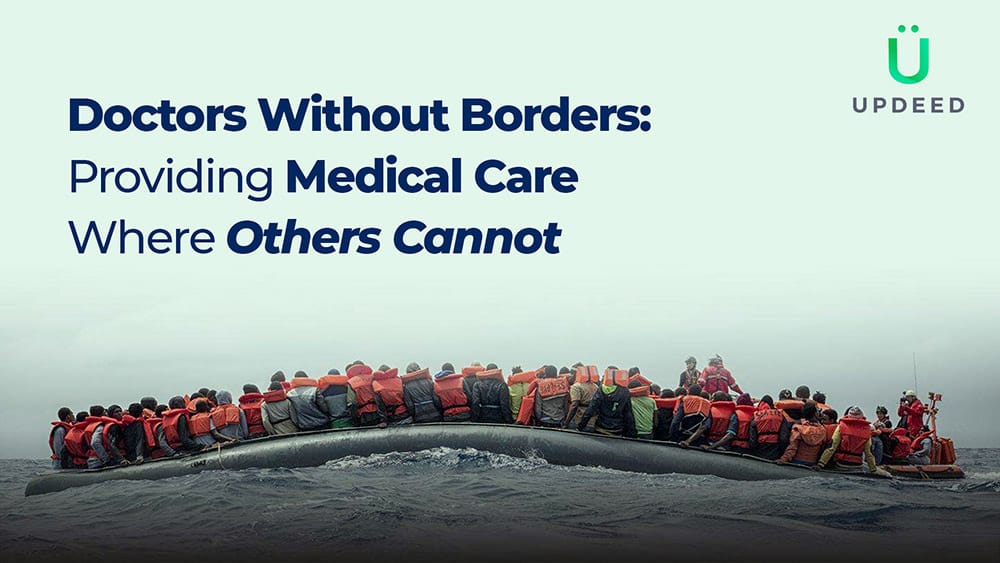Doctors Without Borders: Providing Medical Care Where Others Cannot
Recently, a group of people received a notification about an abnormally high mortality rate among a secluded population residing in the Omo Valley, situated in Ethiopia. Upon investigation, the team identified an outbreak of visceral leishmaniasis or kala-azar.
They rapidly organized an emergency response by establishing mobile clinics, which facilitated the identification and treatment of 79 patients who were suffering from this neglected tropical disease in under two months.

These were a group from Doctors Without Borders/Médecins Sans Frontières (MSF) – an international medical humanitarian organization that provides medical assistance to people in need, regardless of their race, religion, or political affiliation.
Founded in 1971 in France, MSF has grown to become one of the world’s leading independent humanitarian organizations, operating in over 70 countries.
Providing medical care
MSF’s mission is to provide medical care in areas affected by conflict, natural disasters, epidemics, and other humanitarian crises. The organization’s medical teams include doctors, nurses, and other healthcare professionals who provide a range of services, from primary care and emergency surgery to vaccination campaigns and psychological support.
MSF is known for its impartiality, independence, and willingness to speak out about the humanitarian issues it encounters. The organization operates on a volunteer basis and relies on private donations to fund its operations.
One of the most important aspects of MSF’s work is its ability to provide medical care in areas where other organizations cannot or will not operate. MSF’s commitment to impartiality and independence allows it to work in conflict zones and areas of political instability, where governments and other aid organizations may be unable or unwilling to assist. This often means that MSF is the only organization providing medical care to people in need.
MSF’s impact on the lives of people affected by humanitarian crises is significant. The organization’s medical teams provide essential care and support to people who have been affected by conflict, natural disasters, and epidemics. MSF’s emergency response teams are often among the first to arrive in areas affected by disasters, providing vital medical care to those in need.
One of the most significant examples of MSF’s impact is its work in responding to the Ebola virus outbreak in West Africa in 2014-2015. MSF was one of the first organizations to respond to the outbreak, and its medical teams worked tirelessly to provide medical care and contain the spread of the virus. MSF’s work in the Ebola response was recognized with the award of the Nobel Peace Prize in 2015.
Another significant example of MSF’s impact is its work in providing medical care to refugees and displaced people around the world. MSF’s medical teams provide care and support to people who have been forced to flee their homes due to conflict, persecution, or other forms of violence. This work is critical in ensuring that vulnerable populations receive the medical care they need to survive and recover from the trauma they have experienced.
Need for more
The need for organisations like MSF is clear. Humanitarian crises are increasing in frequency and severity, with conflicts, natural disasters, and epidemics affecting millions of people around the world. These crises have significant health impacts, often leading to high rates of morbidity and mortality, as well as long-term health problems for those affected.
In many cases, governments and other aid organisations are unable or unwilling to provide the medical care and support that people in crisis need. This is where organizations like MSF are critical. MSF’s commitment to impartiality and independence allows it to work in areas where other organizations cannot or will not operate, ensuring that medical care and support are provided to those who need it most.
Moreover, MSF’s work in speaking out about humanitarian issues is critical in raising awareness and advocating for change. The organization’s independent voice allows it to draw attention to the human impact of conflicts, natural disasters, and other crises, and advocate for political and social change that can address the root causes of these crises.
In conclusion, Doctors Without Borders is an essential organisation that provides vital medical care and support to people affected by humanitarian crises around the world. The organisation’s impartiality and independence allow it to work in areas where other organizations cannot or will not operate, ensuring that medical care and support are provided to those who need it most.
Ready to make a positive impact in the world?
UPDEED is the place for you. Our free and open platform is filled with inspiring stories from individuals and organizations who are making a difference in their communities and beyond. Connect and collaborate with like-minded individuals from around the globe on UPDEED, and discover your own potential to create meaningful change. Join our community and make a difference.





